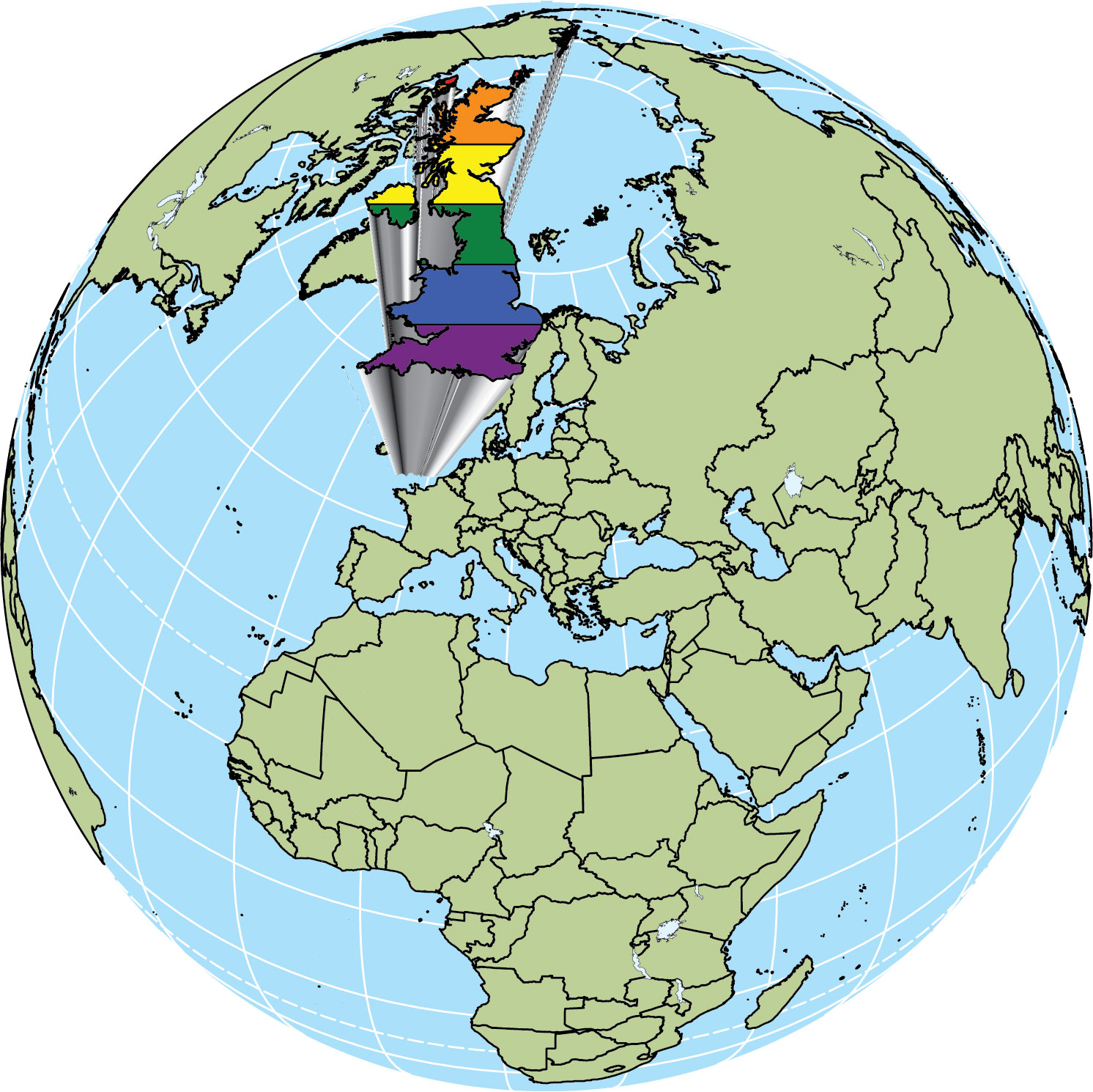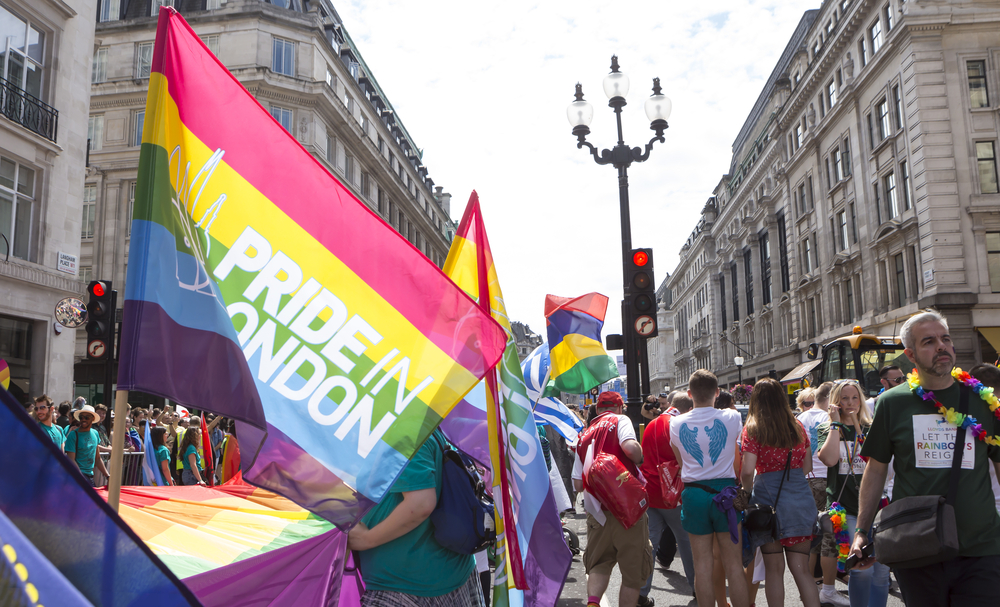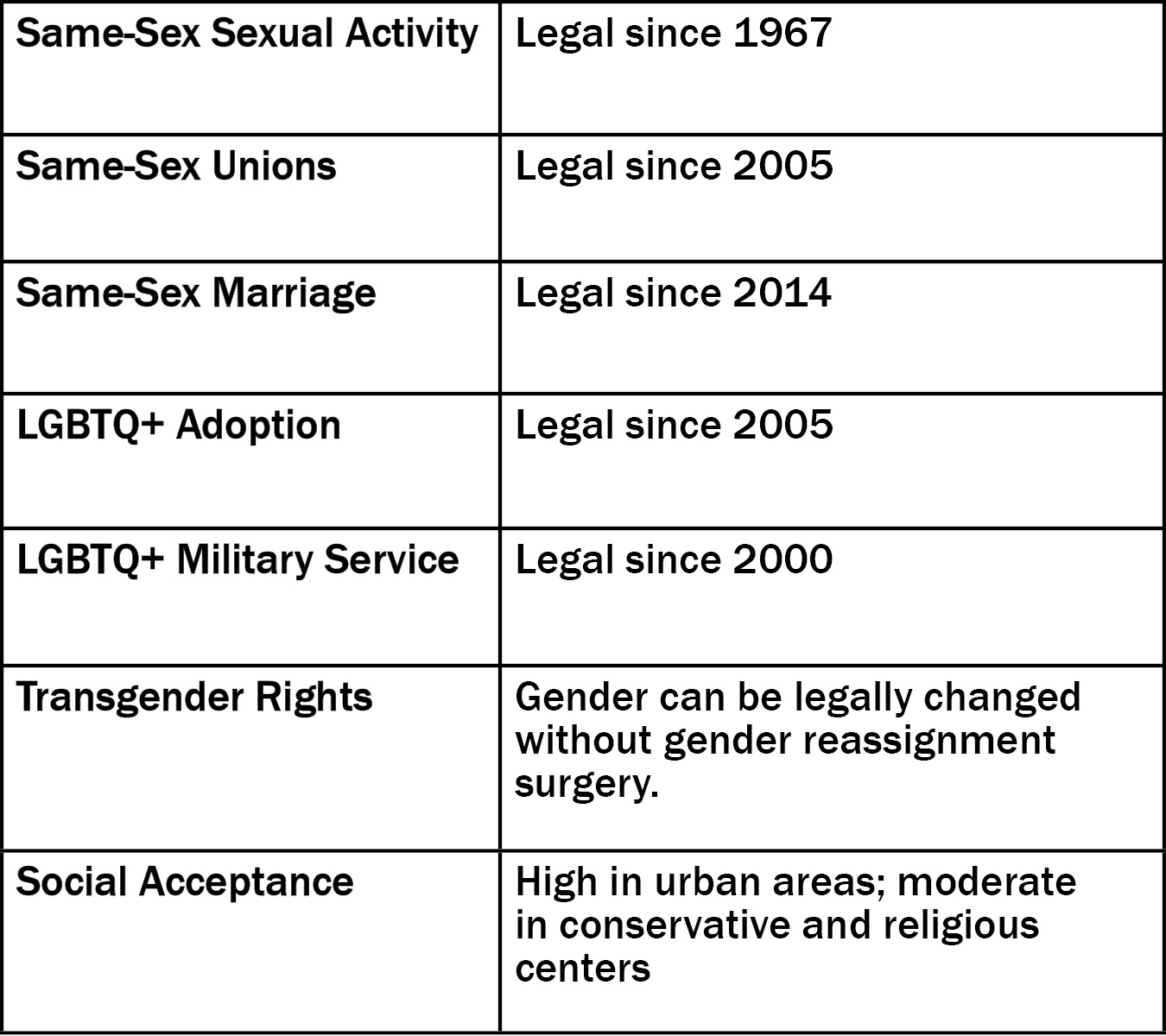LGBTQ: Legal and Cultural Status
Over the past few years, the LGBTQ+ community has been the beneficiary of a marked shift in global public opinion, with movement towards greater cultural acceptance and enhanced legal status. Nevertheless, views are not uniform across all countries.
In the most progressive countries, members of the LGBTQ+ community enjoy cultural acceptance, social freedoms, and full legal status. In the most restrictive countries, identifying as LGBTQ+ or engaging in same-sex acts is punishable by jail or death.
When preparing to travel abroad as a tourist or for business, members of the LGBTQ+ community should thoroughly research country-specific legal, cultural, and security issues prior to departure.
Understanding where a destination country falls on the spectrum of acceptance allows LGBTQ+ individuals to decide whether to travel to a given destination and to understand how to conduct themselves safely when they arrive.
Legal Facts
Same-Sex Sexual Activity
There was never an explicit ban against same-sex sexual acts between females in the United Kingdom. Males were historically banned from engaging in sexual acts. The Sexual Offences Act of 1967 began the decriminalization of same-sex sexual activity within the United Kingdom. However, the law had significant caveats, including the fact that the act must take place entirely in private, which barred same-sex sexual acts from taking place in a home with a third person present. This law also only affected England and Wales. Scotland eventually followed suit in 1981, and Northern Ireland in 1982.
Same-Sex Unions
The Civil Partnership Act of 2004 provided legal recognition to same-sex couples with similar rights and responsibilities to conventional marriages. This law, passed on November 18, 2004, came into effect in 2005. Civil unions weren’t necessarily recognized internationally in the same way as marriages, creating issues related to emigration for same-sex couples.
Same-Sex Marriage
Same-sex marriage was not legalized across the entirety of the United Kingdom all at once. England and Wales were first to legalize the act, doing so with the Marriage Act of 2013. That law was passed on July 17, 2013, and became effective on March 13, 2014. Scotland passed The Marriage and Civil Partnership Act of 2014 on February 4, 2014, which came into effect March 12, 2014.
In 2019, Northern Ireland failed to form a government by the traditional deadline and had to receive an extension from the United Kingdom Parliament. The Northern Ireland Executive Formation Act of 2019 allowed for this extension, but also included language which compelled Northern Ireland to adopt legislation allowing for same-sex marriages. Same-sex marriage then became legal in Northern Ireland on January 13, 2020.
Adoption
The Adoption and Children Act of 2002 was passed by the United Kingdom Parliament on and became effective on December 30, 2005. The bill dropped language from a previous law that had required adopters be married and opened the door for same-sex couples and individuals to become adoptive parents. Scotland passed similar legislation which became effective on September 28, 2009, and Northern Ireland did the same on December 11, 2013.
Military Service
The British Armed Forces have allowed LGBTQ+ individuals to serve since 2000. The Equality Act of 2010, which came into effect on October 1, 2010, set a legal precedent to allow all LGBTQ+ individuals to serve and to criminalize discrimination against them.
Gender Identity Laws
The Gender Recognition Act of 2004 passed on May 25, 2004. The bill came into effect April 4, 2005. The law allowed for transgender individuals to apply for a Gender Recognition Certificate by presenting their case in front of the Gender Recognition Panel. Individuals who wish to legally change their gender must have transitioned for at least two years prior to requesting a certificate, though gender reassignment surgery is not required to qualify for a certificate.
Anti-Discrimination Laws
The Equality Framework Directive 2000/78/EC was a directive issued by the European Committee which compelled member states to adopt anti-discrimination laws. The laws passed by the United Kingdom outlawed discrimination against LGBTQ+ individuals when it came to employment. The Sexual Orientation Regulations of 2007, which came into effect on April 30, 2007, banned discrimination in the provision of goods and services to LGBTQ+ individuals. Eventually, on October 1, 2010, The Equality Act of 2010 came into place. This law replaced all the anti-discrimination laws which proceeded it and consolidated them into a single bill. This law offered umbrella protections against all forms of discrimination to LGBTQ+ individuals.
Cultural Considerations
Public Opinion
Roughly 90 percent of the United Kingdom is believed to be in support of same-sex marriage. Generally, individuals in the United Kingdom are tolerant toward lesbian, gay, and bisexual individuals. Transgender individuals face more discrimination, with less than half of the United Kingdom fully supporting transgender individuals. The debate of how to extend rights to trans individuals is a source of contention within the United Kingdom, with the country divided on how to treat transgender people.
Public Displays of Affection
In the United Kingdom, casual displays of affection, including hugging and holding hands, is common among couples no matter their sexual orientation or gender identity. More intimate displays of affection, including kissing, are frowned upon no matter the couple engaging in the act.
Opinions on Cohabitation
The majority of UK citizens are comfortable with LGBTQ+ couples living private lives, and there are no widespread opinions condemning the cohabitation of these couples.
Consistency of Opinions
The United Kingdom is fairly consistent when it comes to the opinions of individuals toward the LGBTQ+ community. However, there are rural areas of the United Kingdom where more religious and conservative communities may be less welcoming.
Article written for World Trade Press by Taylor Holloran.
Copyright © 1993—2024 World Trade Press. All rights reserved.

 United Kingdom
United Kingdom 


